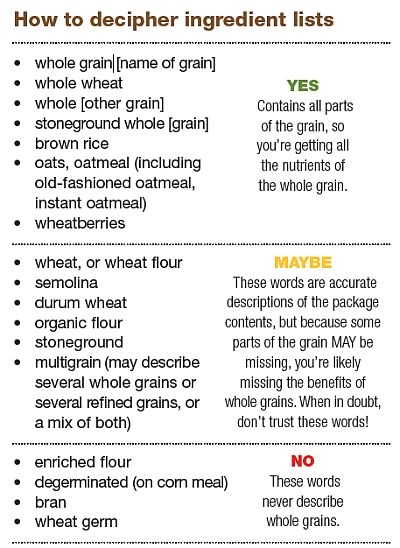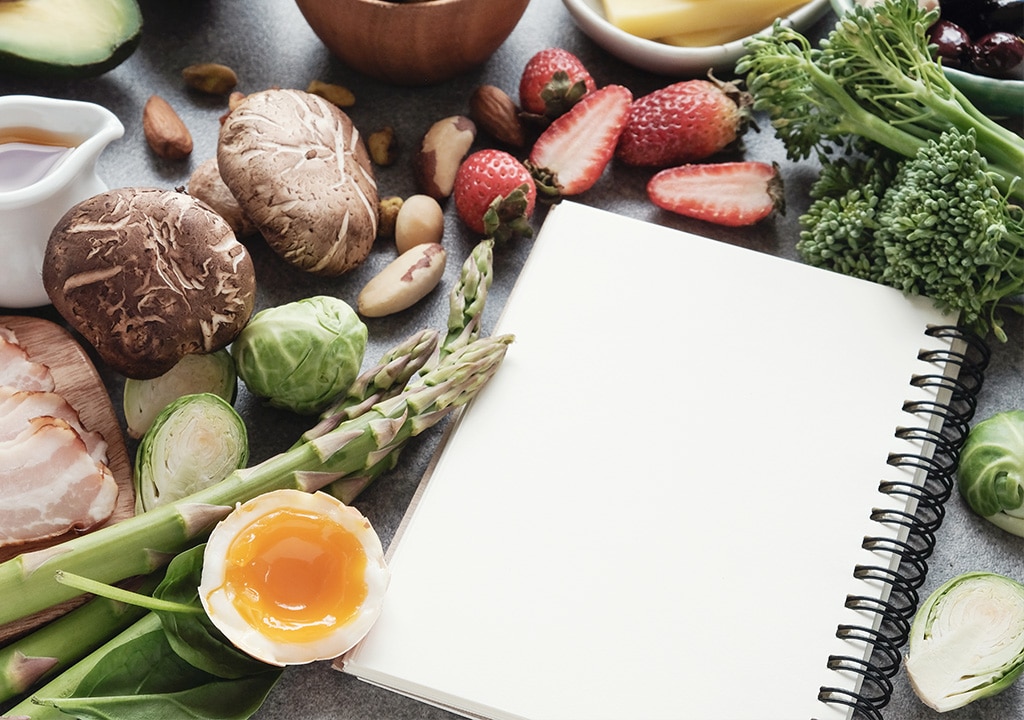
A key part of reaching your athletic goals is selecting the right sports nutrition plan. You need to eat a balanced diet and not consume too many calories or too much protein. It's common to assume that carbohydrates are essential for athletes, but they're the most important component of a balanced diet. The right combination of carbohydrates, proteins, fats, can fuel your body to achieve your goals.
To ensure that their bodies can digest the food properly and to minimize gastrointestinal upset, athletes should eat three hours before any competition or exercise. It's important to consume a healthy diet full of carbohydrates, protein, and fat, and limit the intake of starchy vegetables and junk food. A balanced diet of whole grains, lean meats, fruits, veggies, and whole grains is essential for good sports nutrition. These foods provide great nutrition, but aren't good for calories.

Before an event, carbohydrates are the most important food that an athlete needs to eat. Carbohydrates provide energy and are found in many foods, including milk, breads cereals, grains, vegetables, fruits, and grains. A good way to consume carbohydrates is to have small amounts and avoid high fat or high-protein meals. A high-carbohydrate food should be consumed at least 2 hours before an event to get the best results.
The ideal diet for athletes should be rich in complex carbohydrates as well as healthy fats. A balanced diet should include 45% to 66% carbohydrates and 10% to 30% protein. 25 to 35% of the calories should come from fat. A good habit to follow is to drink lots of water before, throughout, and after sports. The right food at the right time will maximize your performance and reduce muscle damage due to oxidative stress. Supplements are important for athletes to help speed up recovery.
A balanced diet with carbohydrates and fats is the best for athletes. The body's primary source of energy is glucose, which is broken down carbohydrates during digestion. It is converted to glycogen, a type fatty that is stored within muscle tissue. This provides an essential source of energy for athletes' workouts. The best way to boost glycogen stores is to eat carbohydrates and fatty food before and after the event.

Besides dietary fiber, athletes should also drink adequate amounts of water. Good health requires adequate hydration. To sustain its activities, the body requires a steady supply of fluids as well as sodium. This is the best method to prevent muscle cramps and increase performance. Athletes should ensure their diet and training are balanced. This is especially difficult for endurance athletes. This can also lead to headaches and cramps.
FAQ
Is Cardio Better Than Strength Training?
Both are equally good. But cardio is a much better choice if you want to gain muscles faster.
Cardio burns more calories in a minute than strength training and more fat.
Strength training helps build muscle mass. But it takes longer than cardio to accomplish this goal.
What is the best way to increase muscle mass?
Two main types of exercises are required for building muscle mass. These are the isolation exercises as well as compound movements. While compound movements focus on a single muscle, isolation exercises are focused on specific muscles.
The best way to improve your workouts is to choose exercises that challenge all your major muscle groups. This ensures you're always pushing yourself during your workouts.
MyFitnessPal, an app that tracks your actions, can be used to help you keep track. It allows you log everything, including calories burned and weight lifted. You can also create custom meal plans based on your goals.
Is Egg good for man?
All nutrients are contained in the egg. It also helps maintain strong bones, a healthy heart and lungs, and stable blood pressure.
Eggs are an excellent source of protein, vitamins A, B12, D, E, K, calcium, phosphorus, iron, zinc, copper, magnesium, selenium, and riboflavin.
The egg yolk is high in cholesterol. The egg yolk does not contain saturated oil. Eggs are lower in saturated fat than other foods.
They are also low calories and sodium. Because they can be cooked in almost any way that you wish, they are versatile. They can be poached or scrambled, baked, hard-boiled, or fried.
They are extremely nutritious and simple to prepare.
Aim to eat two whole eggs per week. Avoid eating eggs.
Our bodies need eggs to provide the essential nutrients they require. Try adding them to your daily diet today.
Do I need to exercise every morning?
No! Get at least 30 minutes of moderate-intensity physical activity 5 days a week. It means you need to exercise hard enough or walk fast enough that you are slightly out-of- breath.
What is a good daily gym routine?
Regular exercise is key for staying in shape. It doesn't make a difference what kind of activity you choose. As long as you do it often, it will be beneficial. The key thing is consistency. It is important to stay consistent in order to get results.
Begin by starting to do a little bit of physical activity each day (like walking). Then gradually increase the time spent exercising until you spend 30 minutes a day working out. This could include running, cycling, swimming, weight training, yoga, or aerobics classes.
Try to get active every day. Don't miss any sessions unless you have an excuse.
If you exercise outside, ensure that you wear appropriate clothing and footwear. You also need to consider the weather conditions and whether they affect your ability to exercise safely.
When exercising, ensure you drink lots of water. Drinking alcohol during exercise can cause dehydration. Caffeinated beverages such as tea, coffee, and cola should be avoided. These drinks may give you energy but also dehydrate your body.
When you first start exercising, you might feel tired after completing your workouts. But if your workouts are continued, you will feel more energetic.
How to Lose Belly Fat Fast
There are many methods that can help you reduce your belly fat quickly. One way is to eat less food and drink plenty of water.
Another way is to increase your metabolism by participating in activities such as running and swimming.
Avoid sitting down if your goal is to lose belly fat quickly. Instead, get up and move around throughout the day. This will help reduce calories.
If you've tried all the methods and are still struggling with belly fat, there's another option.
This involves using a device called a belt. The belt is designed to fit around your waist while you are sitting down.
This will make you feel uncomfortable and allow you to move about. This forces you to burn more calories and reduces your belly fat.
How often should you exercise per week?
It all depends on how much time and what kind of exercise you like. A general guideline would be moderate-intensity aerobic exercise 3 - 5 days a week. It's important that you don't overdo it. It is crucial to exercise regularly in order to reap the full benefits of your workouts.
Which exercises are best for me?
It really depends on what kind of fitness goals you have. Some people concentrate on endurance activities such running, cycling, swimming. Others love lifting weights or using resistance bars. There are many types of exercise programs today. Select the one that best suits your needs.
Statistics
- Cardmembers earn 5% Back at Amazon.com with a Prime Credit Card. (amazon.com)
- According to the American Academy of Dermatology (AAD), men over 50 are at a heightened risk of developing it. (healthline.com)
- 10 pounds in a month is likely during a lean bulking phase, especially for beginners. (muscleandstrength.com)
- Candidates and applicants must pass all four tests at 70% (minimum level) to graduate from Basic Deputy U.S. Marshal (BDUSM) Training. (usmarshals.gov)
- Get free shipping and 25% off today. (healthline.com)
External Links
How To
How can I exercise to burn fat?
Exercise burns calories by increasing metabolism and oxygen consumption.
If you exercise with moderate intensity, you can safely lose weight.
To burn fat while exercising, follow these tips:
-
Cardio exercises include swimming, running or cycling.
-
Exercise for 30 minutes three times per week.
-
Strength training is a great way to lose weight.
-
Avoid intense training. You can build muscle and not break down muscle tissue.
-
Keep hydrated during exercise. Water is essential for flushing out toxins and keeping your body hydrated.
-
After exercising, you should drink low-fat protein drinks. Protein shakes are great for your muscles and energy.
-
Take smaller meals throughout each day to avoid feeling hungry.
-
Don't skip breakfast! Skipping breakfast can cause you to feel tired and sluggish.
-
Take care of your mental health. Stressful situations can slow your metabolism.
-
Keep a positive attitude. Studies show that people who believe they're overweight gain more weight than those who think they look pleasing.
-
Get enough sleep. You will have a harder time losing weight if you do not get enough sleep.
-
Be active. Be sure to get up and move around every hour or two.
-
Maintain a healthy diet. You will feel fuller longer if you eat right.
-
Find ways to relax. Relaxing doesn't mean your body releases stress hormones which cause muscle tissue to be destroyed.
A balanced diet contains all necessary nutrients for growth and development.
You should eat six small meals per day rather than three large ones. This gives your body time and energy to process the food.
You need about 500 milligrams of calcium daily to maintain strong bones. Calcium can be found in dairy products such as yogurt, fortified soybean beverages, orange juice, cereals, bread, and cereals.
Calcium can be found in leafy green veggies, beans, tofu and nuts as well as seeds, nuts and cheese.
Vitamin D is required by the body to absorb calcium. Vitamin D is found in certain fortified foods, such as egg yolk and fatty fish.
Vitamin E is vital for your skin's health. Vitamin E can also be found in vegetable oil, wheat germ oils, peanuts as well almonds, sunflower seeds and corn.
Zinc is essential for healthy immunity and wound healing. Zinc is found in seafood, oysters legumes meats, whole grains, whole grains and meats.
Zinc deficiency can cause fatigue, loss of appetite, depression, and impaired immunity.
Eating too much sugar causes insulin resistance, which increases blood glucose levels. Insulin resistance can lead to weight gain.
Insulin resistance is caused by high blood levels of free-radicals. Free radicals are molecules containing unpaired electrons which cause damage to cells membranes.
The most common sources of free radicals include food additives.
Free radical damage can lead to cancer, heart disease, diabetes, arthritis, asthma, and aging.
The best way to avoid free radicals is to eat a balanced diet high in antioxidants. Antioxidants protect against oxidative damage.
Vitamin C (found on citrus fruits), Beta carotene, found in carrots and sweet potatoes, spinach and broccoli, cantaloupe (found in tomatoes, mangoes and peppers), and Vitamin E (found nuts, olive oil and avocados).
Selenium, manganese (and zinc) are other antioxidant nutrients.
Selenium is known to protect cells from the oxidative damage that free radicals can cause. Selenium is found in Brazil nuts, tuna, liver, kidney, shrimp, cod, turkey, beef, lamb, pork, and chicken.
Copper protects your eyes, brain, eyes and red blood cell. Copper can be found in shellfish and poultry as well as meat and organ meats.
Manganese plays an important role in bone structure. Manganese may be found in brown rice or spinach, bananas and prunes as well raisins, oatmeal and lentils.
Zinc is required for normal growth, reproduction and wound healing. Zn is present in lean cuts of meat and white fish, as well as eggs.